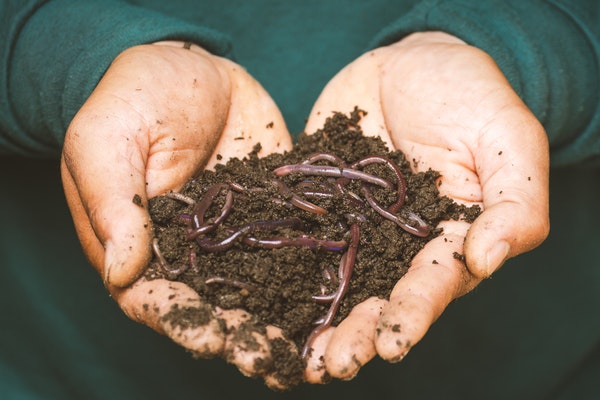Student-led sustainability

With compost bins in every learning space, and clever composting systems throughout, students at Mother Teresa Catholic Primary School in Mount Ridley, Victoria are brewing worm tea for the whole community.
All 469 students across all year levels (Foundation to year 6) are involved in sustainability initiatives as part of their kitchen garden program. We spoke recently to the kitchen garden program coordinators about their sustainability initiatives. Thanks to Annette Gasbarro and Tina Sabato for taking time out to their talk us through what’s happening on campus – and the wider community.
How does composting fit within the school’s kitchen garden program?
Each learning space (classroom), including cooking studio and staff space, has a compost bin. All food scraps are placed in compost bins and collected every second day. The scraps are cut up and placed into our worm farms. Our aim is to reduce, reuse and recycle all food scraps, and we have a few ways of doing this.
- We have a number of worm farms that we feed, and this also provides us with worm tea (fertilizer) which is used in our vegetable garden. As a school community we also sell worm tea to the wider community: we have set up stores in shopping centres and the local parish fete where our children have had the opportunity to sell and showcase this product.
- Mega bins – this 3-section compost system has been constructed by our maintenance person. All food scraps and garden clippings are placed into these bins, producing rich fertilizer which is used within our school grounds.
- Lugg boxes – we are currently trialing these crates with holes in them, which are buried into our vegetable garden and a layer of dirt is placed on the bottom of the crates. Food scraps are placed into these boxes and each box comes with a lid. This allows the worms to roam freely within the garden beds producing rich fertilizer.
As a school community, we are reducing, recycling and reusing organic waste. By learning about composting, some of our students have implemented worm farms and composting at home with their families.
How does your kitchen garden program support your school’s broader sustainability initiatives?
As a sustainable school we are rubbish-free. Children bring no packaging to school and use recyclable containers for their snacks and lunch. If children do bring packaging to school, they then bring all packaging back home for it to be placed in their recyclables bin at home.
We have four water tanks on our school grounds, which provide us with water to maintain our school grounds, as well as for our toilets.
Our vegetable garden provides us with a selection of vegetables and fruits that are used in our kitchen garden. The children are given the opportunity to plant, maintain and harvest vegetables from the garden and then cook a delicious lunch which is shared with the children and staff.
Our school grounds have expanded over the years, and we have included a number of drought-tolerant plants, native grasses, indigenous plants and herbs, fruit trees, olive orchard, roses and a variety of other plants.
How have the composting and broader sustainability initiatives tapped into the broader school community?
We work in partnership with Bunnings and have been fortunate to have representatives come to our school and conduct mini workshops. They have assisted us in organising our worm farms and have donated seedlings and gardening tools to our school. Parents and staff have also provided us with various seedlings and tomato plants to be planted in our vegetable garden.
We have a number of families within our school community that also now have worm farms at home. This has been an initiative of students that take great interest in our school worm farms and wish to have their own at home.
What else has the focus on composting achieved?
In 2020, our year 5/6 students participated in a Kids Teaching Kids program workshop, and as a result, we have implemented this program with our sustainability leaders. During term 1 and 2 they have had the opportunity to engage in focus groups with the younger students teaching them about composting. This included how to set up and maintain a worm farm; what food scraps to collect and why certain food scraps are not suitable; what happens to our food scraps and how worm tea is produced and bottled.
Check out the Shared Table for some great composting and worm farm tips, activities and lessons, and search to see what other schools are up to:
A guide to composting https://sharedtable.kitchengardenfoundation.org.au/resource-library/444
Hot compost: a garden lesson and activity https://sharedtable.kitchengardenfoundation.org.au/resource-library/934
Fertiliser tea: https://sharedtable.kitchengardenfoundation.org.au/resource-library/1246
KGP at home – Heat and Energy: https://sharedtable.kitchengardenfoundation.org.au/resource-library/1371
< Back to Latest News
